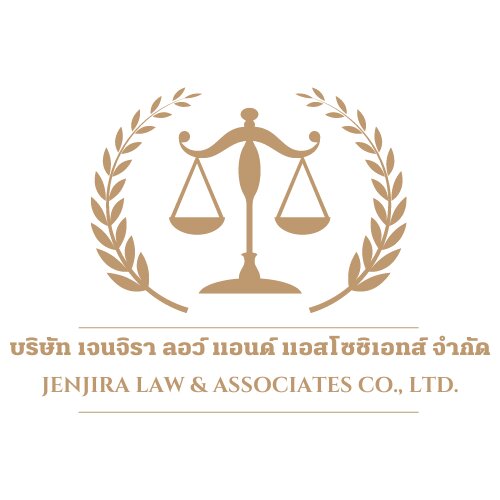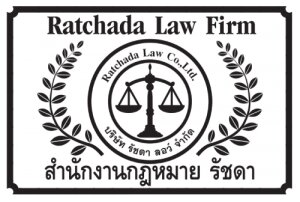Best Private Equity Lawyers in Bang Kapi
Share your needs with us, get contacted by law firms.
Free. Takes 2 min.
List of the best lawyers in Bang Kapi, Thailand
Thailand Private Equity Legal Questions answered by Lawyers
Browse our 1 legal question about Private Equity in Thailand and read the lawyer answers, or ask your own questions for free.
- Land dispute
- My wife and I bought land from her aunt during COVID, when we lived in England. So we put the land in her mother's name, because we could not travel due to COVID. We moved to Thailand 10 months ago and have recently found out that my mother-in-law had finance... Read more →
-
Lawyer answer by C.P. LAW BUSINESS CONSULTANT
You can sue to recover all your property, land, or money, and also claim compensation for any damages you have suffered. If we find that all their actions constitute criminal fraud, we can prosecute them.
Read full answer
About Private Equity Law in Bang Kapi, Thailand
Private equity refers to investment in private companies that are not listed on the stock exchange. In Bang Kapi, a vibrant district of Bangkok, Thailand, private equity law governs the acquisition, management, and exit of investments in local enterprises. This legal field covers a variety of aspects, including structuring investment vehicles, negotiating shareholder rights, due diligence, regulatory compliance, and dispute resolution. As the local economy flourishes, private equity remains an essential channel for business growth and entrepreneurial funding.
Why You May Need a Lawyer
Private equity transactions are often complex and involve significant capital. You may require legal assistance in situations such as:
- Negotiating and drafting investment agreements or shareholder agreements
- Performing due diligence before investing in a company
- Structuring private equity funds or investment vehicles
- Ensuring compliance with the laws of Thailand
- Handling regulatory filings and licensing requirements
- Resolving disputes among partners or with portfolio companies
- Exiting investments, such as through mergers, acquisitions, or initial public offerings
- Protecting intellectual property and other business assets
- Tax planning and minimizing liabilities
- Dealing with cross-border investment issues and foreign ownership restrictions
A specialized lawyer ensures that your interests are protected, helps you navigate local regulations, and can increase the likelihood of a successful investment.
Local Laws Overview
Private equity in Bang Kapi, Thailand, must comply with both local and national legal frameworks. Key legal considerations include:
- The Civil and Commercial Code, which governs contracts, business organizations (such as limited companies and partnerships), and obligations
- The Foreign Business Act, which places restrictions on foreign ownership in certain business sectors
- Securities and Exchange Act, applicable if the investment structure resembles a public offering or collective investment scheme
- Bank of Thailand's regulations regarding foreign currency remittance, repatriation of funds, and cross-border transactions
- The Revenue Code, which covers taxation of investment returns, capital gains, and fund structures
- Compliance with anti-money laundering and counter-terrorism financing regulations
Legal requirements may differ based on the investor's nationality, the industry involved, and the size and type of the investment. Detailed legal support is often necessary to structure deals appropriately and maintain compliance.
Frequently Asked Questions
What is private equity in the context of Thailand?
Private equity involves investing in private companies by acquiring ownership stakes or providing capital in exchange for equity, with the goal of generating returns through growth or eventual exit such as selling the stake.
Are there restrictions on foreign investors in Bang Kapi?
Yes, the Foreign Business Act limits the sectors in which foreign investors can hold majority ownership, and certain approvals may be required for foreign participation in Thai companies.
Do private equity investments require government approvals?
In some cases, particularly when foreign ownership or regulated sectors are involved, prior approval or licensing from relevant authorities may be needed.
How are investment returns taxed in Thailand?
Investment gains may be subject to capital gains tax, withholding tax, or corporate income tax depending on the structure of the investment and residency status. Proper tax planning is crucial.
What legal documents are commonly involved in private equity deals?
Key documents include share purchase agreements, shareholder agreements, investment agreements, due diligence reports, and board resolutions.
Can foreigners own 100 percent of a private company in Bang Kapi?
This depends on the business sector. Some sectors allow full foreign ownership, while others require majority Thai ownership or special licenses.
Is due diligence required, and what does it include?
Yes, both legal and financial due diligence are essential before investing. This assesses company structure, liabilities, assets, compliance, and potential risks.
How are disputes in private equity transactions resolved?
Disputes can be resolved through negotiation, mediation, Thai courts, or arbitration according to the terms in the investment agreements.
What is the typical timeline for closing a private equity transaction?
The process can take from several weeks to several months, depending on deal complexity, regulatory requirements, and the due diligence process.
Do I need a local partner for investing in Bang Kapi?
In certain restricted industries, having a local Thai partner may be necessary. Legal advice should be sought to determine the requirements for your specific investment.
Additional Resources
If you need legal advice or more information about private equity in Bang Kapi, consider consulting the following resources:
- The Department of Business Development (DBD), Ministry of Commerce
- Securities and Exchange Commission (SEC) of Thailand
- Bank of Thailand for regulatory guidance on foreign investment
- Board of Investment (BOI) for incentives and investment promotion schemes
- Thai Institute of Directors and other professional organizations
- Local chambers of commerce and business associations in Bang Kapi
- Legal clinics or law firms specializing in private equity and investment law
Next Steps
If you are considering a private equity investment in Bang Kapi, Thailand, or need legal assistance, begin by clearly defining your investment objectives and gathering all relevant documents. Next, consult with a qualified law firm or specialist in private equity law. Your legal counsel can help you conduct due diligence, structure your investment, ensure regulatory compliance, and draft or review all required contracts. Early legal involvement can prevent costly mistakes and protect your interests throughout the investment process. Always communicate your concerns and goals, and ask for clarification when needed to ensure you make informed decisions.
Lawzana helps you find the best lawyers and law firms in Bang Kapi through a curated and pre-screened list of qualified legal professionals. Our platform offers rankings and detailed profiles of attorneys and law firms, allowing you to compare based on practice areas, including Private Equity, experience, and client feedback.
Each profile includes a description of the firm's areas of practice, client reviews, team members and partners, year of establishment, spoken languages, office locations, contact information, social media presence, and any published articles or resources. Most firms on our platform speak English and are experienced in both local and international legal matters.
Get a quote from top-rated law firms in Bang Kapi, Thailand — quickly, securely, and without unnecessary hassle.
Disclaimer:
The information provided on this page is for general informational purposes only and does not constitute legal advice. While we strive to ensure the accuracy and relevance of the content, legal information may change over time, and interpretations of the law can vary. You should always consult with a qualified legal professional for advice specific to your situation.
We disclaim all liability for actions taken or not taken based on the content of this page. If you believe any information is incorrect or outdated, please contact us, and we will review and update it where appropriate.










